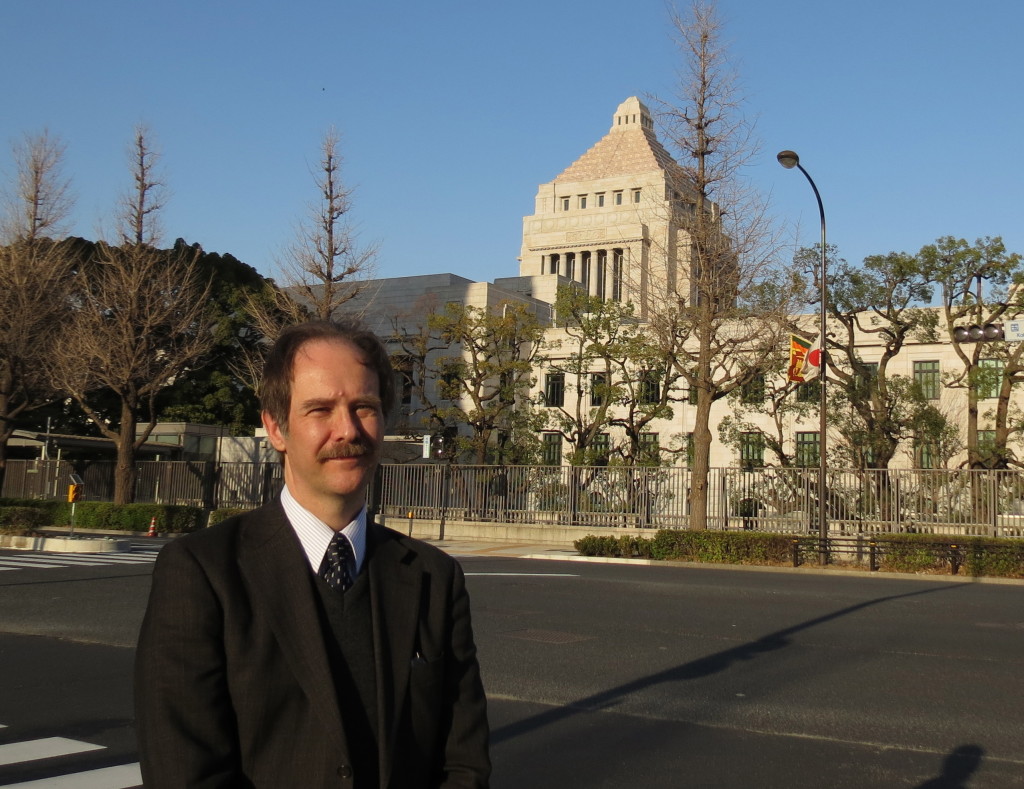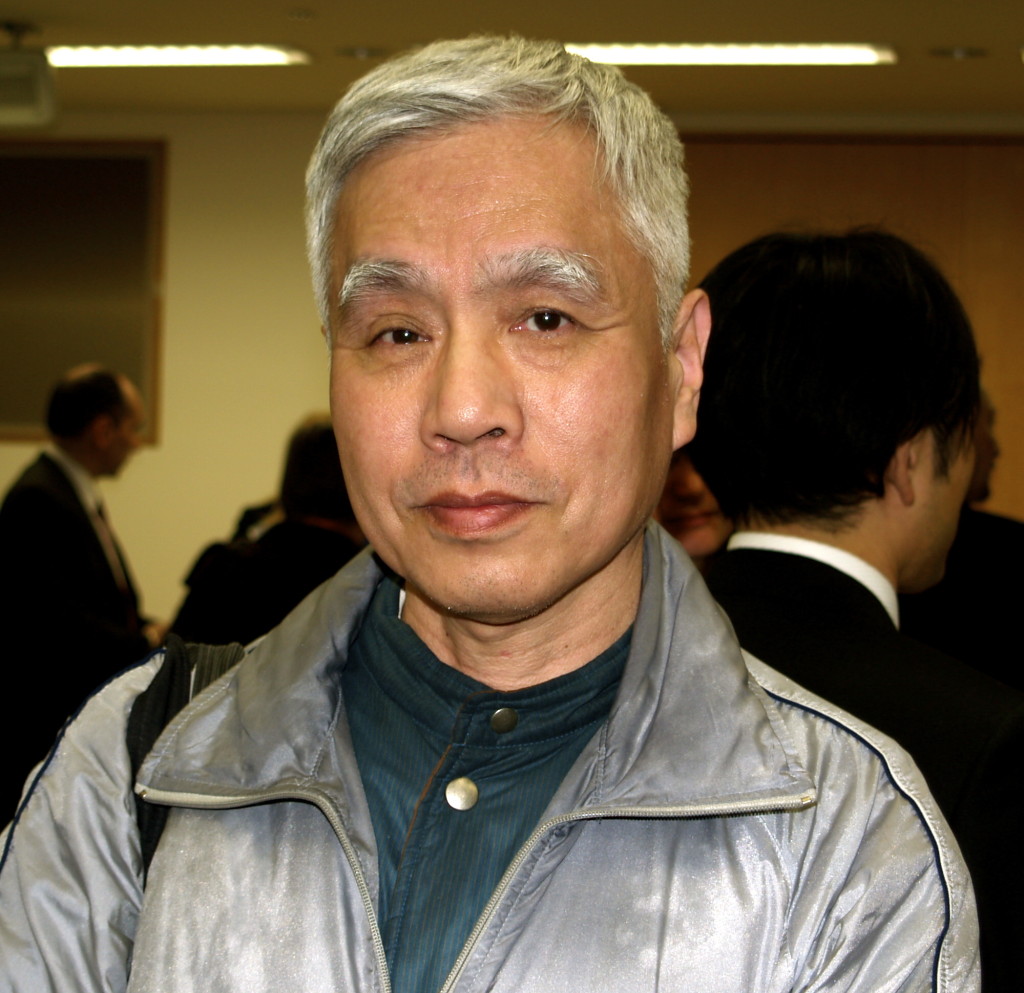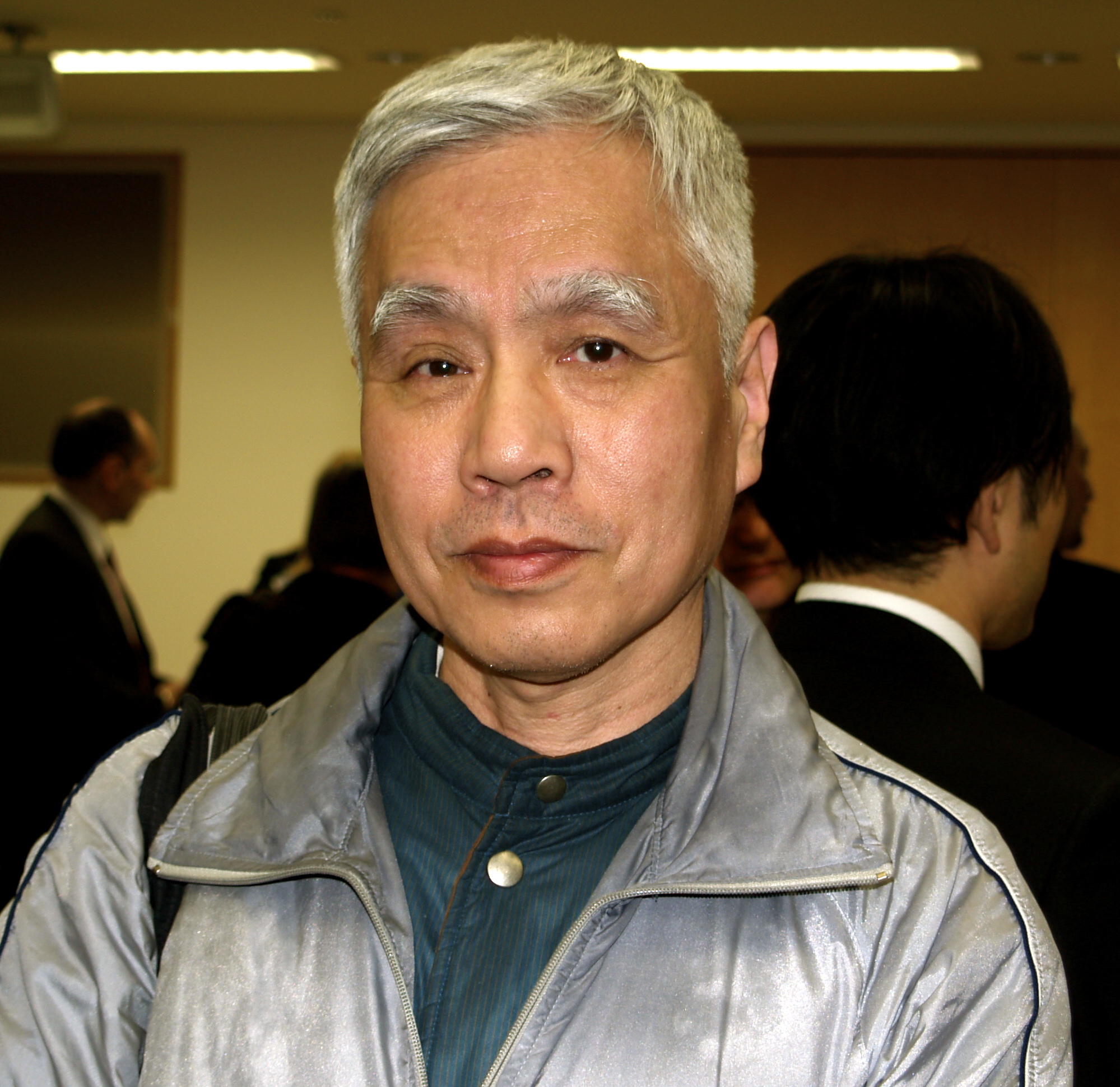In Japan, millions of children grow up without seeing one of their parents if they divorce. There is no joint custody in Japan, not yet.
But in May of this year, after 30 years of international pressure, the Japanese Diet finally passed the bill necessary to join the Hague Convention on the Civil Aspects of International Child Abduction. Japan is now able to enforce the pact by March 2014 after the domestic procedures will be completed. Under the convention, the parents of abducted children will have a legal framework to request their children to be returned if they do not face grave danger, including domestic violence. In Japan, the police handle cases of domestic violence, and will determine whether the claim is true or false. Currently, if the parent who was granted the sole custody agrees to let the other parent see the child, the typical visitation is about once a month.
Japanese courts reportedly almost never grant custody to foreign parents, especially fathers, when international marriages break up. But sometimes, foreign mothers can use the Japanese family laws against their Japanese ex-spouses.
On July 11, 2009 Tamami, the daughter of Seiji Tashima, 62, was taken away from her home town in Hiroshima by her Russian mother. Tamami still lives in Japan, but her location is unknown to her father who was not granted child custody after divorce.
In Japan, close to 150,000 divorced parents per year lose contact with their children in Japan. Most have no choice but to obey the law.
Takao Tanase, a lawyer and great defender of children and parents rights who is currently a law professor at Chuo University in Tokyo, noted that Japan does have a criminal clause declaring child abduction as being a crime, and cases of domestic abduction are well known. However, the first abduction is usually not treated as a crime. “After a parental dispute, once the de facto custodian is designated by the Japanese family court, the left-behind Japanese parent can be arrested by the police if he/she tries to take back the child from the custodian parent,” he told The Daily Beast.
Joining The Hague Convention may not immediately affect divorced Japanese couples, but it will significantly change the Japanese society and family law. Japanese lawmakers say that if The Hague Convention is ratified, domestic laws will have to be rearranged in order to be consistent with it. Efforts are being made at the national Diet to change the domestic laws by March of 2014.
After a study session on The Hague Convention at the National Diet earlier this year, Tsuyoshi Shiina, 37, a lawmaker from the Minna no Tou (Your Party, Center-Right) said that he was in favor for Japan joining the Hague Convention. “However I think that it will be difficult to convince the hard-headed lawmakers, because they believe it is a matter of ‘cultural conflict.’ Those who are not able to think of a ‘global Japan,’ will be those who will oppose Japan joining the Hague Convention.” He added.

Cultural difference?
There is no joint custody in Japan (yet.) The notion of “giving up” a child is part of in Japanese society. Justifications for this are not clear. Article 766 of the Civil Code explains very clearly that it is a family court that would decide the matter of who will have custody over a child, visitation and other means of contact between the child and his/her mother or father if an agreement cannot be reached, or discussions are not possible. And the family court grants custody to the parent who abducted the child first.
“In Japan, children are considered not to undergo stress during separation and divorce but actually, by being denied access to one of their parents, they experience far more stress than removing the other parent and saying, it is a stable environment,” John Gomez, chairman of the recently founded NPO, “Kizuna Child-Parent Reunion,” told JSRC.

Until the laws will actually change in Japan, Japan Subculture Research Center will post Tamami’s story every year on the day she was separated from her father to allow her to Google-search her own name when she will need to find her Japanese father from whom she was forcibly taken away.
We feel that perhaps Seiji Tashima and his abducted child should be given a chance to reunite.
For support and information, please join the Kizuna-Child Parent Reunion, an NGO based in Tokyo that has its office near the National Diet Building and the US embassy.
If you want to help this NGO raise fund to continue its battle towards joint custody in Japan, please watch this video and the NGO’s homepage.
Kizuna Child-Parent Reunion has just received Japanese government approval as a Non Profit Organization. “KCPR helps children to reunite with their parent in constructive, diplomatic cross-cultural manners, working with various governments around the world, including the Japanese government, in trying to create a bridge or focal point where international efforts and Japanese domestic efforts can be brought together and government officials, parents from both sides of the marriage can work out their differences and bring their children together. There has been success in several cases where negotiation between parents has brought children reuniting with their parents.”
The multiple efforts of John Gomez in both Japan and the U.S. are probably showing results today, in a time when Japan might finally be joining the Hague Convention.

As what the article says, sometimes the family is used against the Japanese husband by the foreign wife. As I’ve seen, some foreign women deliberately gets pregnant to gain residence. And they rarely want to part with their children even after divorce to gain leverage for visa purposes. There are even those who use the children to hide their illegal activities. Quite sad to the aggrieved party.
haha what are you talking about?lol
how about what japanese women are doing to foreign men and japanese men?
Good article, thanks! This is encouraging(-ish) news for the affected parents and children, though wouldn’t the family registry system need to be rewritten to include joint custody? Or how about restructuring divorce law in Japan to include “no-fault” divorces, with the aim of mitigating hostility during (some, though of course not all) divorce proceedings? I share Tsuyoshi Shiina-san’s concerns about those hard-headed lawmakers.
I actually wrote my undergraduate dissertation on this very topic, and came to similar conclusions about the problems ahead, which feels rather vindicating (but also sad too for those involved). Incidentally I made great use of the fantastic Takao Tanase article you linked, as well as this great piece by Colin Jones, entitled In the “In the Best Interests of the Court: What American Lawyers Need to Know About Child Custody and Visitation in Japan”. http://blog.hawaii.edu/aplpj/files/2011/11/APLPJ_08.2_jones.pdf
When Japan agrees to all the stipulations of signing the Hague convention. It needs to implement proper access to all the children who have been alienated and abducted and for the loving parents who have been denied human rights for all these years.
It’s clearly a human rights violation to deny a loving father/Mother all his/her precious years of spending time with his or her child.
Whether they set up free counselors or some kind of equal rights for visitation………….. They need to grant proper access to the children with no political loopholes within the law. Thousands upon Thousands of Mothers and Fathers will come to Japan in hopes of seeing their children, who have also suffered the trauma of the vicious torment of being denied access.
Children need to know, they were indeed loved, Whatever kind of Brainwashing that might have occurred by the Alienating or abducting parent taking advantage of Japanese law.
Japan has continuously violated international law and has turned a blind eye to the fact that other countries and foreign people Love their children. The relatives of the children have suffered and the children need to now they have numerous relatives who have wanted to share and be a part of their lives, but have also suffered the torment of passing years of denied contact.
Life is about Love and Life is about knowing you were loved. Life can be cold, Hope the children can feel the warmth of their Parents and Relatives Love soon.
Tim Johnston Japan
Kai Endo Japan
Another casualty to Japanese law is the fact that thousands of unhappy couples stay married since the father, usually a foreigner, knows his wife will refuse him visitation rights in the case of a divorce. In other words, many international fathers have to put up with their wive’s backwards Japanese attitude or else they will never see their kids again.
Hi.
This is very often the case for many foreign men in Japan.
The wives are verbally and physically aggressive towards their husbands knowing the law is on their side.
I am very interested to know the extent of the law when it comes to the logistics of the country of birth of the child and the country of marriage.
I myself am In a relationship whereby my son is half Japanese and I am from NZ.
My son was born in New Zealand, has both NZ and Japanese citizenship, he is only three years old, and we were married in NZ. Now we live in Japan. He only has a NZ passport at this stage. By NZ law, divorce usually ends in joint custody of children in normal cases. If I were to divorce in Japan I’m sure the Japanese law would hold rank, however if I was somehow able to relinquish my son’s Japanese citizenship and nationalize him as only a NZ citizen whilst being in NZ, i.e. I leave Japan with my son, and then file for divorce and custody under NZ laws, I’m fairly confident the Japanese laws would have no strength in NZ. Especially if my son is no longer a Japanese citizen, was not born in Japan, and his parents were married in NZ. Any thoughts re this scenario?
This is based on the grounds that my wife wants to work more and send my son off to kindergarten more than ten hours a day. She has lost the concept of family life and treats me like she treats her younger brother and has hidden deeply routed problems from her childhood. She is sometimes violent, and verbally viscious. I wish not to be I’m a relationship with her, but want to have the opportunity to at least still be a father to my son I truly love. It is not out of hatred but out of concern and love for my son.
Have there been cases similar to this where the father has succeeded?
Cheers.
Anon Ymous Dad
My understanding is that the Hague Convention will require a parent who removes his/her children from the “habitual place of residence” to return them. So, if a couple is living in the UK, and the Japanese mother takes her children back to Japan, then the convention will require them to be returned to the UK.
This appears to be completely separate from the notion of joint custody. Once the family is “reunited”, then any custody-related issues full under domestic law.
Taking the above example in reverse, if the couple were instead living in Japan and the British father takes his children back to the UK, the convention will require they be returned to Japan. Once back in Japan, assuming a divorce takes place, there would still be no joint custody, since it’s not recognized here.
Japan signed on to the Hague Convention. Yet, Japan has changed some of the promised agreements when they decided to accede to the Hague Convention. The Loopholes within the Law has many foreigners calling it the Vague Convention.
Many parents have been denied access and MOFA has put up many barriers for Parents who live in Japan to see their children. Japan plans on not helping foreigners living in Japan who have lost contact with their children. Does this make any sense? Few things do in Japans Politics.
Tim Johnston Japan
Kai Endo Japan
[…] top of this, joint custody between parents is still relatively rare in Japan. Children receive little to no contact with the alienated parent, and the remaining single […]
Joint custody is not all it is cracked up to be. It can actually make parental conflict worse. Joint custody only really works when parents agree to it, and really cooperate to make it work. Right now, Japan has sole custody without any kind of visitation. It would probably be better to have sole custody with enforced visitation for the other parent rather than go hog wild with joint legal custody or 50/50 when that was never an accepted practice like in the West. At the same time, Japanese women were not the one who set up this system of sole custody without visitation. Up until the 60s, Japanese MEN almost always got sole custody, and the japanese mother never saw her children again. Now, the shoe is on the other foot because the court realizes that the child is better off with the primary caregiver (and that is almost always the Japanese mother who are mostly stay-at-home moms). However, women (foreign and japanese) are treated just like the men with no visitation rights in cases they do not get custody. That shows that the non-custodial parent is in jeopardy no matter what their gender in the current system. Women just get luckier in the current system because they primarily raised their children. However, the court should realize that the other parent should at least get some kind of visitation. However, joint legal custody or 50/50 as a blanket solution would turn the japanese courts into the mess that family court is in the West. Non-custodial parents. John Gomez is wrong when he said removal of a parent is more stressful because it is actually less stressful for a child to be stuck between two warring parents with joint legal custody who spend years in court fighting over where the kid goes to school, or what pediatrician they should go to. At least with sole custody with visitation, the custodial parent can make decisions without a big war, and the non-custodial parent can get some visitation. That said, a lot of these left behind foreign parents (namely fathers) are awful vocal about wanting joint legal custody, but they exhibit behaviors or have histories that make one question whether their kids should be exposed to these guys Abusive, bullying men don’t make very good co-parents in a joint custody situation. The American family courts are already full of these guys making their ex-wives and children miserable all under the name of co-parenting.
I know a western man who has to put up with his Japanese wife’s infidelity and is scared of loosing his kids. He is scared she can threaten divorce and he may never see the kids again.
She got pregnant by another man and her husband had no option but to put up with it or loose his kids if he wanted to divorce. This kind of law is just not fair. I never knew this existed.
She can bring another man into their house, which her husband paid for, but if in his wife’s name because of the law and he can’t do a damn thing.
That just floored me.
What’s 2016 now we all have our sad stories
I’ve been told the law might change in July of this year 2016
But I can sign in information on the web
(‘_’?)
Well it’s 2016 now
And we all have our sad stories
Is there any new news
On joint custody
The law might change in July 2016
(‘_’?)
[…] As Japan moves toward recognizing joint custody, a father nourishes hope for reunion… […]
My Japanese wife is regularly violent, abusive and has all but destroyed me mentally. I have been stabbed with a pen, had large knives and batteries thrown at me and she has sent me literally thousands of emails threatening to kill me, our children or herself. She badmouths me on a daily basis to the kids, aged 12 and 10, telling them I’m a loser, a sh** part-timer, useless, the worst father in Japan etc all because I don’t earn enough (which for her would be around 500,000yen per month). This has been going on for 5 years and I don’t know how I have managed to restrain myself from lashing out. Her mother also told me that if I don’t start earning more money then she’ll report me to the police (I earn around 240,000 per month). I know that if I retaliate in any way whatsoever I will lose my children which would kill me. I spoke to a lawyer who told me I might as well just return to England alone.
It is a living nightmare but I have to suck it up if I want to continue to live with my children.
This is really awful. However, if you document everything you have, including the threats, you could press charges against her. You need a good lawyer and you’d have to go to the police.